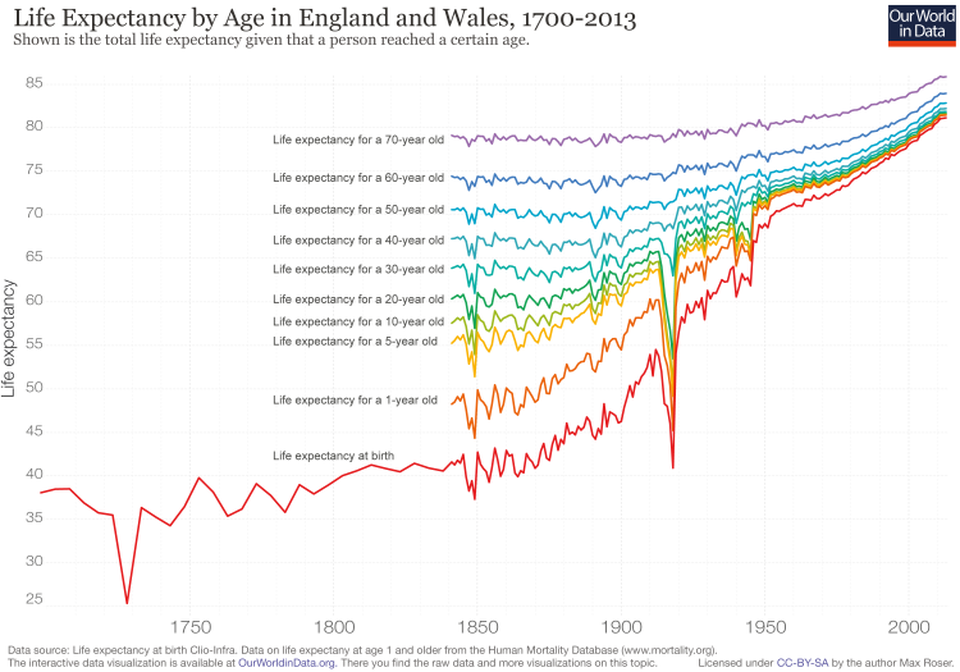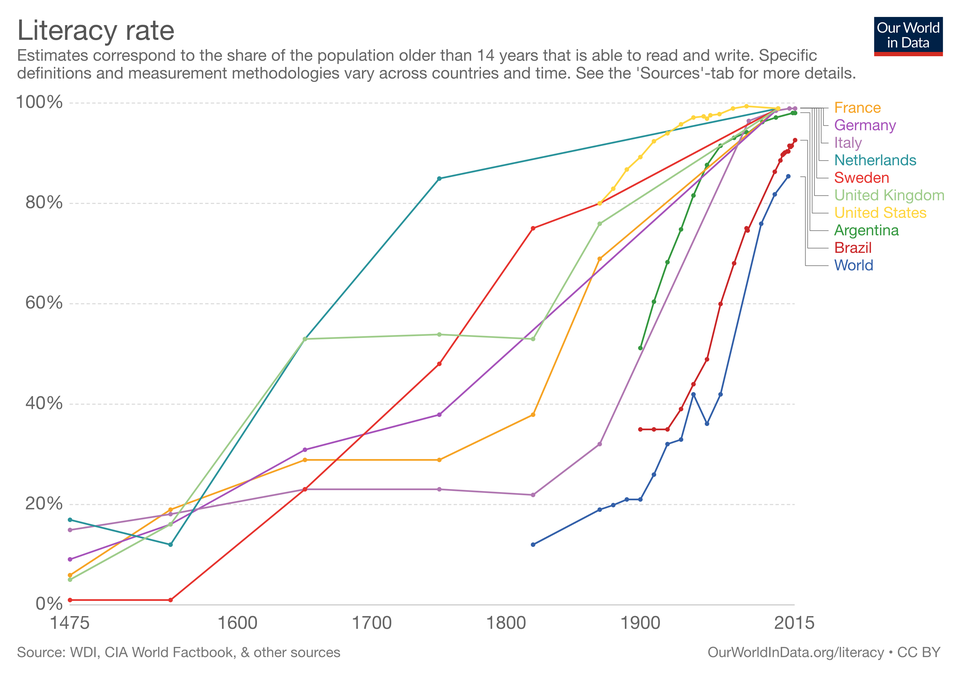Today, I am 40 years old. Here are three things I’ve achieved that relatively few people throughout history have done:
- Living to age 40. Life expectancy at birth, even in very wealthy countries, was abysmally low--under 40--until the nineteenth century. The excellent website “Our World In Data” has more, including this graph of life expectancy at different ages for England and Wales since 1700. A lot of the decline was driven by reductions in infant mortality. I was born pneumonia, and a century or two ago I probably wouldn’t have made it out of infancy. This isn’t the whole story, though, as life expectancy at different ages has also increased. Where in the mid-1800s at age 40 I would have had about another 20 to 30 years left to live, today I can expect to live another 30 to 40 years.
- The numeracy to know it. Perhaps we shouldn’t be surprised that so many people claim to be “bad at math.” Almost everyone, historically, has been. Research into “age heaping,” which is when people report their ages “at attractive numbers, such as multiples of five” because they lack what we today would call basic quantitative skills. Here’s a Google Scholar search into the phenomenon. The plummeting cost of computing power means that we are just barely scratching the surface of what massive amounts of data combined with ever-increasing quantitative skills can teach us.
- The literacy to communicate it. In 1492 when Columbus sailed the Ocean Blue, fewer than one in five people in the countries for which we have data could have read about it or written about it. It was fewer than one in five globally at the beginning of the Great Enrichment in the eighteenth and nineteenth centuries. Today, literacy is nearly universal in wealthy countries like the United States, France, and Sweden, and more than four in five people around the world aged fourteen and over can read and write. This is simply remarkable as much of the world now has access, at very low cost, to the greatest ideas and artistic achievements people have transmitted through the ages via the written word.
Something I’m celebrating at 40: the ability to read and write.
There is a lot more to celebrate, like higher income, more and better food, clean and comfortable housing, dentistry, communication technology that allows me to deploy my luxury of literacy in conversation with friends and acquaintances around the world, a “hair metal” station on Amazon music, and a supercomputer I can carry in my pocket that gives me pretty much any piece of information I want, whenever I want it. And most importantly, these previously-unattainable luxuries are steadily making their way into the hand of even the world’s poor. And that, if nothing else, is something worth celebrating.











